Salvador de Bahia’s African Culture Tour offers a captivating look into the city’s rich heritage. Visitors can explore the historic center, discovering the intertwining of religion, politics, and culture. From the Terreiro de Jesus to the Cross of Sao Francisco, the tour highlights the enduring influence of Afro-Brazilian art forms like samba and capoeira. The Escola do Olodum‘s efforts to preserve the contributions of the African-descended community are also showcased. With a mix of historical insights and culture, this tour provides a unique opportunity to delve deeper into Salvador’s vibrant African legacy.
This experience made our list of the 16 Best Tours In Salvador Brazil.
Key Points
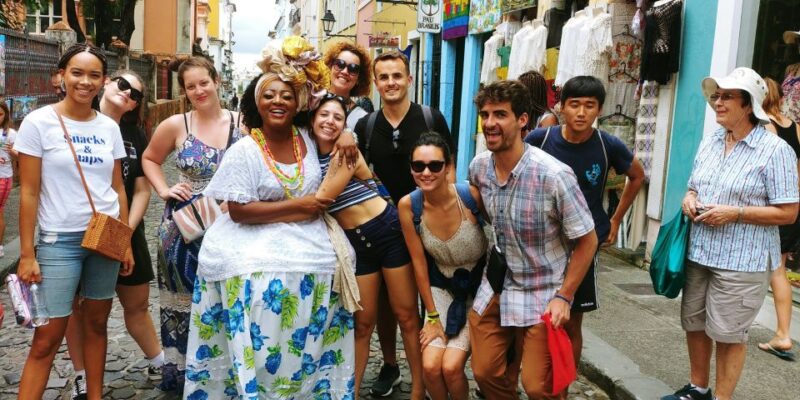
- The 3-hour walking tour explores the African heritage and influence in Salvador de Bahia’s city center.
- The tour visits the Terreiro de Jesus, a hub of Portuguese colonial administration with a complex history.
- The Cross of Sao Francisco is a site associated with a men’s organization for black community liberation.
- The tour showcases the vibrant Afro-Brazilian art forms of samba and capoeira.
- The Escola do Olodum serves as a cultural and educational center dedicated to preserving African heritage.
Tour Overview
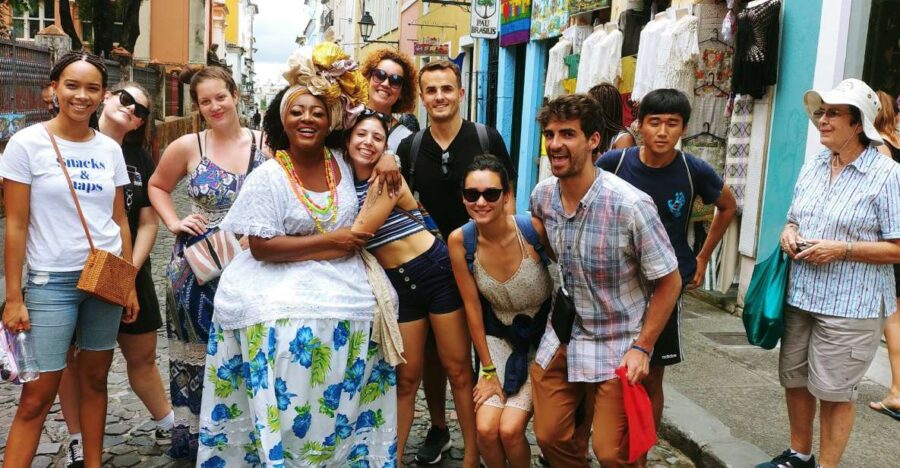
The 3-hour walking tour of Salvador de Bahia allows visitors to discover the African heritage in the city center. The tour starts at 2 pm in front of the Cathedral Basilica of San Salvador.
During the tour, guests will visit Terreiro de Jesus to learn about Jesuit Missions and Portuguese colonization. They’ll see the Cross of Sao Francisco and explore the African cultural elements like samba and capoeira dances. The tour also includes a visit to the Escola do Olodum, a cultural and educational center of African descent.
The tour is led by an English and Spanish-speaking guide and is priced at $56.87 per person, with the option to reserve now and pay later.
You can also read our reviews of more tours and experiences in Salvador Brazil.
Key Highlights
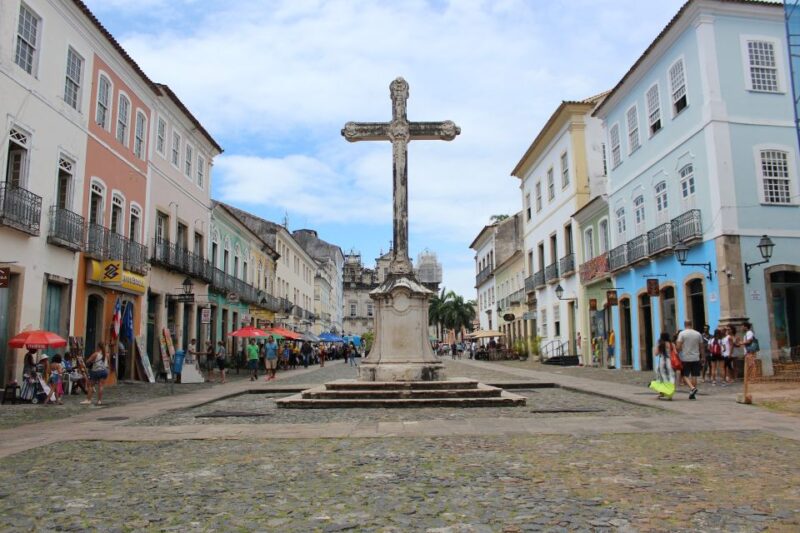
One key highlight of the African Culture Tour is the visit to Terreiro de Jesus, where guests will learn about the Jesuit Missions and Portuguese colonization that shaped the region.
Next, the tour takes visitors to see the Cross of Sao Francisco, a site associated with a men’s organization for black community liberation.
Exploring African cultural elements like samba and capoeira dances is another highlight, offering insights into the vibrant heritage of Salvador de Bahia.
The tour culminates with a visit to the Escola do Olodum, a cultural and educational center celebrating African descent and its enduring influence on the city.
Jesuit Missions and Portuguese Colonization
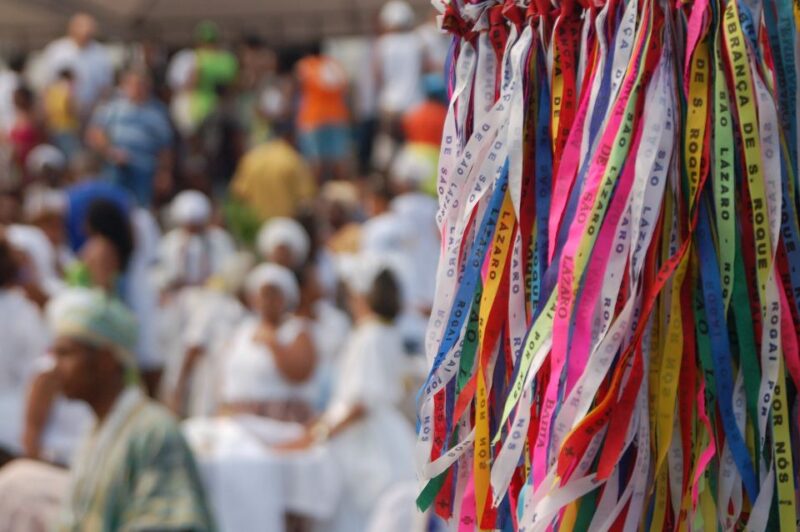
Visiting Terreiro de Jesus provides insight into the influential Jesuit Missions and Portuguese colonization that shaped the cultural landscape of Salvador de Bahia. The Jesuits established a college here in the 16th century, which became a center of religious and educational activities.
Plus, this square was a hub of Portuguese colonial administration, where laws and policies were enacted that had far-reaching impacts on the local population. Today, the square serves as a reminder of this complex history, with its architecture and monuments reflecting the intertwining of religious, political, and cultural forces that have defined the city.
- The Jesuit college in Terreiro de Jesus was a significant educational institution during the colonial era.
- Portuguese colonial administration was centered in this historic square.
- The architecture and monuments in Terreiro de Jesus symbolize the interwoven history of religion, politics, and culture.
Cross of Sao Francisco and Black Community Liberation
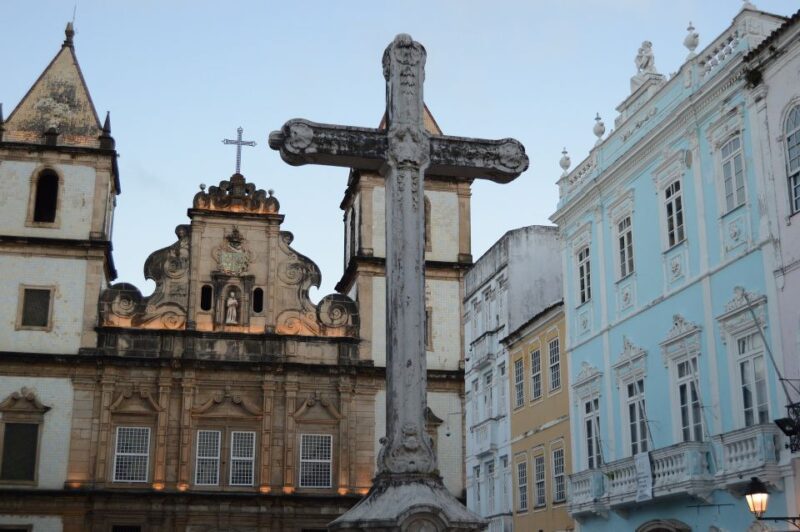
At the Cross of Sao Francisco, visitors learn about a historic men’s organization that championed the liberation and empowerment of the black community in Salvador de Bahia. The organization, known as the Black Brotherhood, played a crucial role in advocating for the rights and social advancement of people of African descent.
Visitors will discover how the group used the Cross as a gathering place to organize rallies, educational initiatives, and cultural celebrations that celebrated and preserved Afro-Brazilian heritage. Through this site, the tour provides insights into the long-standing struggle for racial justice and the resilience of the black community in the face of oppression.
More Great Tours NearbyAfrican Cultural Elements: Samba and Capoeira
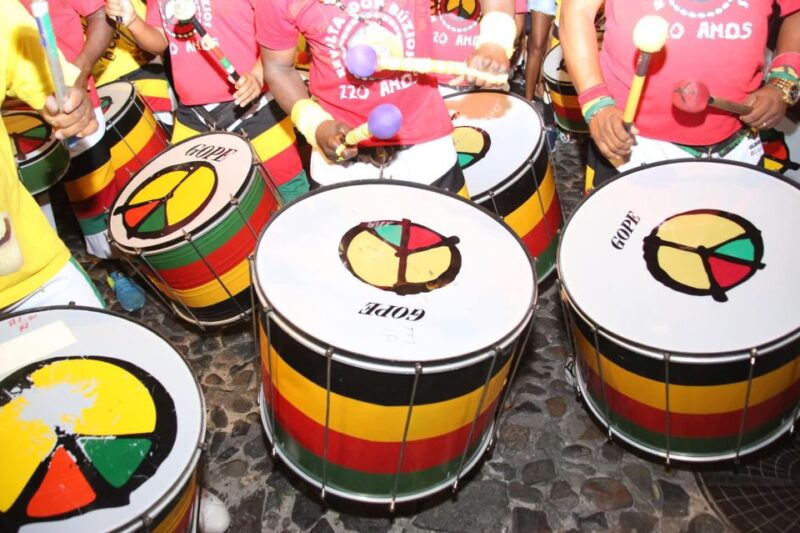
The tour explores the vibrant African cultural elements of samba and capoeira that have deeply influenced the artistic landscape of Salvador de Bahia. Samba, a rhythmic dance form with roots in West Africa, is celebrated in the city’s vibrant street parties and carnivals.
Capoeira, a unique martial art blending dance, acrobatics, and music, is showcased in lively performances that pay homage to the resilience of the Afro-Brazilian community.
- Visitors can witness the captivating movements and rhythms of samba and capoeira, gaining insight into their historical significance and enduring impact on Salvador’s cultural identity.
- The Escola do Olodum, a cultural center, offers opportunities to learn about and experience these art forms firsthand.
- The tour’s exploration of these elements provides a deeper understanding of the African heritage that has shaped the city’s vibrant culture.
Escola Do Olodum and African Descent
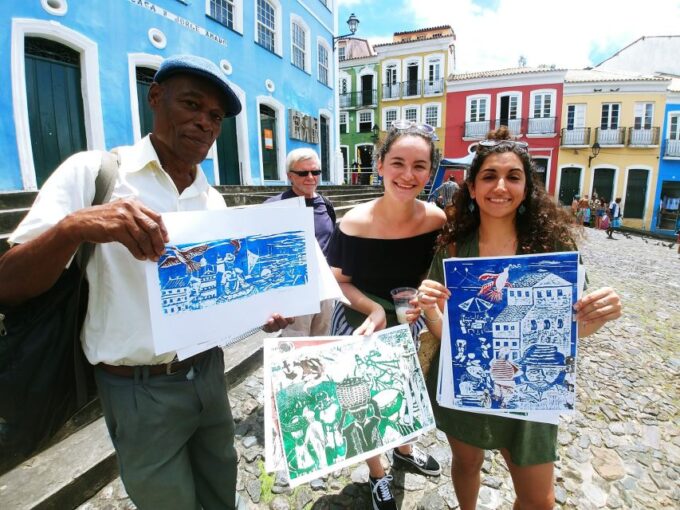
Situated within the vibrant cultural landscape of Salvador de Bahia, the Escola do Olodum serves as a beacon for the preservation and celebration of African descent.
This cultural and educational center is dedicated to exploring the rich heritage and contributions of people of African origin. Visitors can enjoy the rhythms of samba and the fluid movements of capoeira, both deeply rooted in the African diaspora.
The Escola do Olodum also offers educational programs and workshops, fostering a deeper understanding of the enduring influence of African culture on the city’s identity. It stands as a testament to the resilience and creativity of the Afro-Brazilian community, inspiring visitors to engage with this vital aspect of Salvador’s history and present-day vibrancy.
African Celebrities in Salvador De Bahia
Over the years, Salvador de Bahia has attracted numerous African celebrities who’ve left an indelible mark on the city’s cultural landscape. From acclaimed musicians like Gilberto Gil and Caetano Veloso to renowned writers such as Jorge Amado, these artists have brought their unique talents and perspectives to the vibrant streets of this Afro-Brazilian hub.
Plus, influential figures like Mãe Stella de Oxóssi, a renowned Candomblé priestess, have helped preserve and promote the rich African heritage that permeates the city. The influence of these celebrated individuals has undoubtedly shaped the cultural identity of Salvador de Bahia, making it a cherished destination for those seeking to experience the dynamic fusion of African and Brazilian cultures.
- Gilberto Gil and Caetano Veloso – acclaimed musicians
- Jorge Amado – renowned writer
- Mãe Stella de Oxóssi – Candomblé priestess
Pricing and Booking Information
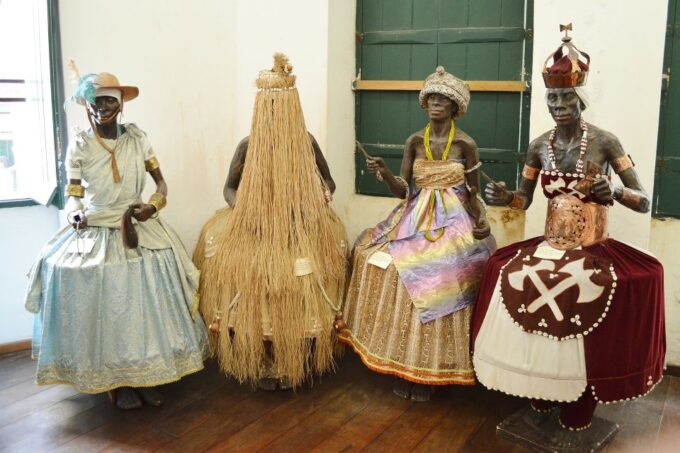
According to the tour overview, the African Culture Tour in Salvador de Bahia is priced from $56.87 per person. Travelers can reserve their spot now and pay later to secure their place on the tour.
The 3-hour walking tour starts at 2 pm in front of the Cathedral Basilica of San Salvador and covers the city’s African heritage, including visits to Terreiro de Jesus, the Cross of Sao Francisco, and the Escola do Olodum cultural center. The tour is led by English and Spanish-speaking guides, providing an informative and immersive experience for visitors to learn about the influence and legacy of African culture in Salvador de Bahia.
Frequently Asked Questions
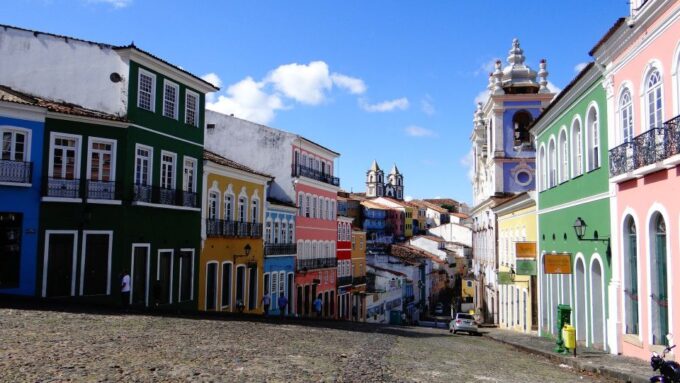
Can I Take Photos During the Tour?
Yes, you can take photos during the tour. The tour guide typically encourages participants to capture the cultural sights and activities along the way to remember the experience.
What Should I Wear for the Tour?
For this walking tour, comfortable clothing and shoes are recommended. The tour takes place outdoors, so dressing in layers and bringing sun protection like a hat or sunscreen would also be advisable.
Is the Tour Wheelchair Accessible?
The tour is wheelchair accessible. The walking route is mostly flat and the guide can accommodate visitors using mobility devices. However, guests should contact the tour operator in advance to ensure their needs can be fully met.
Can I Join the Tour if I Don’t Speak English or Spanish?
Unfortunately, the tour guide only provides information in English and Spanish. Participants who don’t speak either of those languages may have difficulty understanding the tour and may not be able to fully engage with the content.
Are There Any Restroom Breaks During the Tour?
The tour itinerary doesn’t explicitly mention any scheduled restroom breaks, but participants can likely ask their guide to accommodate breaks as needed during the 3-hour walking tour. The pace and logistics allow for flexibility to accommodate personal needs.
Recap
The Salvador de Bahia African Culture Tour offers a captivating exploration of the city’s rich African heritage. Visitors discover the intertwining of religion, politics, and culture, and the enduring influence of Afro-Brazilian art forms. The tour highlights the work of the Escola do Olodum in preserving and celebrating the contributions of the city’s vibrant African-descended community, providing an immersive and enlightening experience for those interested in the African roots of Bahia’s vibrant culture.
You can check availability for your dates here:More Tours in Salvador Brazil
More Tour Reviews in Salvador Brazil
Not for you? Here's more things to do in Salvador Brazil we have recnetly reviewed
- 2 Best Guided Tours In Salvador Brazil
- 3 Best Cruises And Boat Tours In Salvador Brazil
- 3 Best Shopping Tours In Salvador Brazil
- 5 Best Private Car With Driver Services In Salvador Brazil
- 3 Best Lunch Experiences In Salvador Brazil
- Salvador: Online Consultancy With Local Guide
- From Salvador: Morro De São Paulo Paradise Island Daytrip
- 16 Best Tours In Salvador Brazil
- 6 Best Workshops And Classes In Salvador Brazil
- Salvador De Bahia African Culture Tour
- PROMO Salvador: Interactive Art and Culture Private Tour
- 5 Best City Tours In Salvador Brazil
